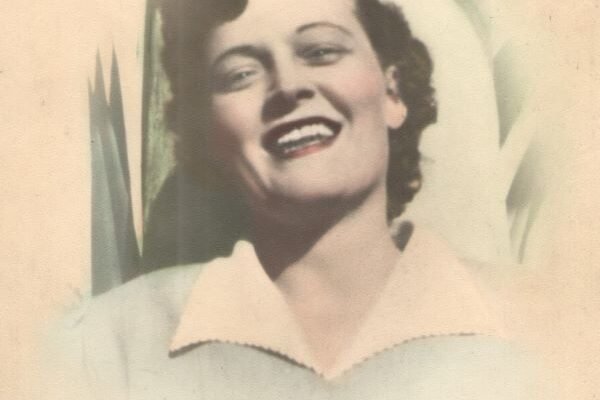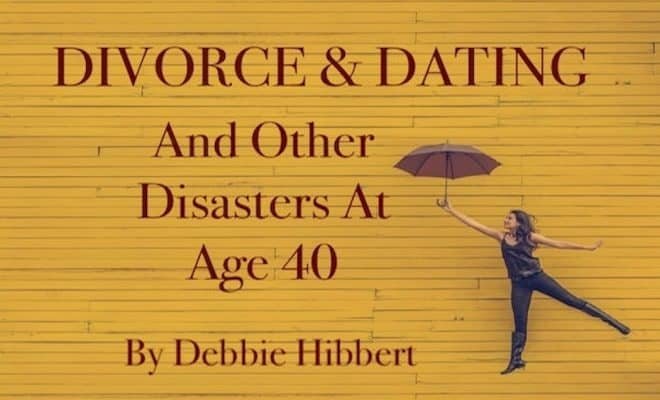Ma Millie

“No, sir! No! No hanky-panky! I would have none of it! Married each one of them!” Thus proclaims Mildred Ruth Ralls, nursing her martini, her voice soft, firm, and reminiscent.
Mildred and I are sitting at the kitchen table in the Naperville home. She has received a letter from her sister Elaine in California. Not sure what Elaine has written, but it does summon a rush of memories for Mildred. Memories of each of her five husbands.
It has been a good day so far, a very good day indeed. We have accomplished what we set out to do—to buy a reliable used car for Mildred. The old car is on its last legs. For one, we cannot turn off the heat. It has been miserable driving it, even short distances, in the hot, humid Midwest summer. And now Mildred, martini in hand, is relaxing and celebrating her new car.
John, my husband, and Mildred’s only son are down in Texas. So, this morning Jason (our son), Mildred, and I set out to explore used-car possibilities. The Ford dealership is the closest. We have recently bought a Probe coupe there. We walk down the aisle towards the used cars section. A salesperson appears and offers his help. I explain. We need a reliable used car for Mildred. He shakes her hand and asks if he could call her Millie. Mildred smiles and nods, pleased to hear the name she grew up with. I mention the heat problem in her current car, and Mildred grimaces in agreement. We walk as we talk, and he mentions a car brought in a little while ago. It is being washed and vacuumed, and he recommends we see it. We walk on with Mildred falling a step behind.
A dig in the back and a whisper from Mildred, “Sunita, I am not going to buy the first car I see.”
I turn and give her a reassuring look.
I continue with the salesperson. “We would like to see it, but a buy-decision will be made by my husband, who is in Texas right now.”
The salesperson nods.
We see the car still dripping from the carwash. An excited Jason walks around it. He scans its various features, low mileage, four doors, automatic, and looks good! Millie forgets it is the first car she has seen. It’s simple— love at first sight. We ask the price, and Jason asks a few more questions. No need to see any more cars! Promising the salesperson a quick response before the end of the day, we leave. Elated, we stop for an enjoyable sandwich and head home to talk it over with John. Each one of us has an opinion.
Millie goes first. “John Phillip, I like it very much.”
Next, Jason describes all the salient features, and then it’s my turn. Finally, John has heard enough and says, “Buy it! Buy it! Buy it! I need to get back to my golf game!”
Patience is not a virtue one can ascribe to Johnny Boy.
Back to the dealership, we go and drive Millie’s new, albeit used, car back home. Broad victorious smiles all around! It’s too much excitement for Millie, and she fixes herself a martini.
The afternoon mail brings the letter from Elaine—Millie’s older sister. Yes, the same one in the old 1914 picture. Baby Millie in her father’s arms and Elaine in her mother, Camille’s, arms. Newt Ralls dies of tuberculosis about six months after the picture. His somber look tells it all. Time is almost running out. The same Newt Ralls, who in an earlier picture sported a jauntily angled hat and a cigar hanging from the corner of his mouth.
Now, where was I? Oh yes! The letter from Elaine.
Elaine shares a serious tiff with her latest boyfriend with a snide remark, “Thank God. I did not marry him!”
Millie makes a face with a toss of her head. Her many marriages are a favorite topic of discussion and digs among her sisters. Over the years, this drama has played out to her face and behind her back. Naturally, this snippety talk does not sit well with Millie! A long side-long look in my direction and a dry Tennessee drawl follows.
“Of course, she did not marry him or anyone else – only hanky-pankied!” Millie reminiscences with a disdainful sniff, a sip of the martini, and a far-away look in her eyes.
“I was too young—both of us were too young, did not know what we were doing.”
It takes me a moment to figure out the context. I do not want to disturb her train of thought. Is this the first husband? A teenage romance, hardly out of their teens, and a rush into marriage. Mildred continues.
“So, it ended in a divorce, and we were both happier.”
Her thoughts drift to Ray. He cuts a dashing figure as a well-known musician and a trumpeter. Rolling Stone Magazine ranks him Number Three in the country sometime in the late 1920s. It is the heyday of the Big-Band era, and Ray has played far and wide, along with Bix Beiderbecke, rated Number One. Bix and Ray, along with others, travel all over the country with the Jean Goldkette Orchestra. Jean Goldkette has been dubbed the Paul Whiteman of the West.
Endless boozing is a way of life. Bix dies at a young age, twenty-eight years, looking forward to marrying the girl of his dreams. Bix writes to his parents about his love for the young lady and his engagement. Read the preserved letter in the Bix Beiderbecke Museum (in Bix’s hometown Davenport, Iowa). Echoes from the past—goosebumps! Ray slides deeper into crippling drinking.
A starry-eyed young Millie follows the not-so-young albeit handsome trumpeter. Ray’s first two wives, having been Ziegfeld Follies’ girls, add to the allure. And the easy manner in which Ray moves in show-biz circles, Millie on his arm. Millie longs for this life. Not only Millie but most of steel-town Granite City is also in awe of their local celebrity.
Mildred and Ray marry, Little Johnny comes along, and reality sets in. Another side-long glance at me followed by a laconic, “I got him on the way down, Dearie.”
Then comes the divorce. Again, Mildred summarizes months of proceedings with, “It was not Ray who divorced me. It was the old man.”
Ray is too fogged up with liquor to be aware of or care about what’s happening. Little Johnny’s granddad, John Morgan Lodwig, is in court every single day. The grandparents are sick with worry. Their biggest fear, Mildred will get divorced and move away. Ray’s dad is keen to follow the proceedings. Little Johnny’s future and their presence in it are at stake. Mildred is fuzzy on the details at this point. John Morgan is well-known, well-connected, and an active member of the Elks. He is very well-liked and respected in Granite City.
Judgement Day is cause for celebration by the grandparents and, on a quieter note, also by Mildred. Justice prevails in favor of a stable home for the child. Little Johnny is to live with his grandparents. Mildred has full visitation rights at any time, day or night. The elated grandparents couldn’t have asked for more. A relieved Mildred is happy to have their support. Now she does not have to worry about raising Little Johnny right. She can work worry-free, go on dates, and visit the grandparents almost every evening. Bathing Little Johnny, putting on his PJs, and story-time are a daily routine. And, of course, stay over for dinner every now and then. Little Johnny misses his mom’s presence from the moment he wakes up and through the day. He waits for her at the screen door every evening, his little nose carrying a good imprint of the screen netting.
As Johnny grows, new activities and rituals take over. Little Johnny looks forward to the weekends. A trolley ride into the city and back with a laughing, smiling Grandpa Jack is a must. The purpose of the weekly trip into the city is to watch a double feature in St. Louis. A paper sack full of oranges provides sustenance during the movies.
Little Johnny’s love for the movies goes way back. When Mildred was expecting, she never missed a movie. In fact, close to her due date, the theater manager asked her not to come till after the baby is born. He did not want any accidents in the dark or babies arriving into this world halfway through a movie.
Little Johnny has a few friends in the neighborhood. One time grandma’s sister sees a little boy playing with a ball*. She notices Little Johnny looking at the ball and offers the kid a nickel. The trade is complete, and Little Johnny has a ball to bounce and run after. And grandma’s sister received a hug and a sweet slurpy kiss.
Weekly visits by the washerwoman take care of all the laundry and ironing. Johnny calls her his Aunt Hannah (not to be confused with Grandma Hannah). She brings him a sweet treat to nibble on every time she comes. Johnny tags along with her around the house. He helps pick up clothes, helps strip beds, and helps get the laundry together for washing. Little Johnny blushes when grandma calls him Hannah’s Little Helper. They both keep up the chatter, with grandma enjoying the babbling and adding to it once in a way. With the laundry all folded, ironed, put away, and beds made, Little Johnny gives Aunt Hannah a tight hug. As she steps out, Johnny waves her goodbye from behind the screen door. On one occasion, grandma remembers something and Little Johnny runs after Aunt Hannah. He grabs her by the hand and leads her back home. The neighbor’s son, Little Johnny’s friend (the same who sold his ball for a nickel), screws up his little nose and shouts, “Why you hugging that n…?”
Little Johnny rushes up to him, socks him in the face, and yells, “Who you calling n…? That’s my Aunt Hannah!”
* These were the Depression years, and toys were not readily available.







